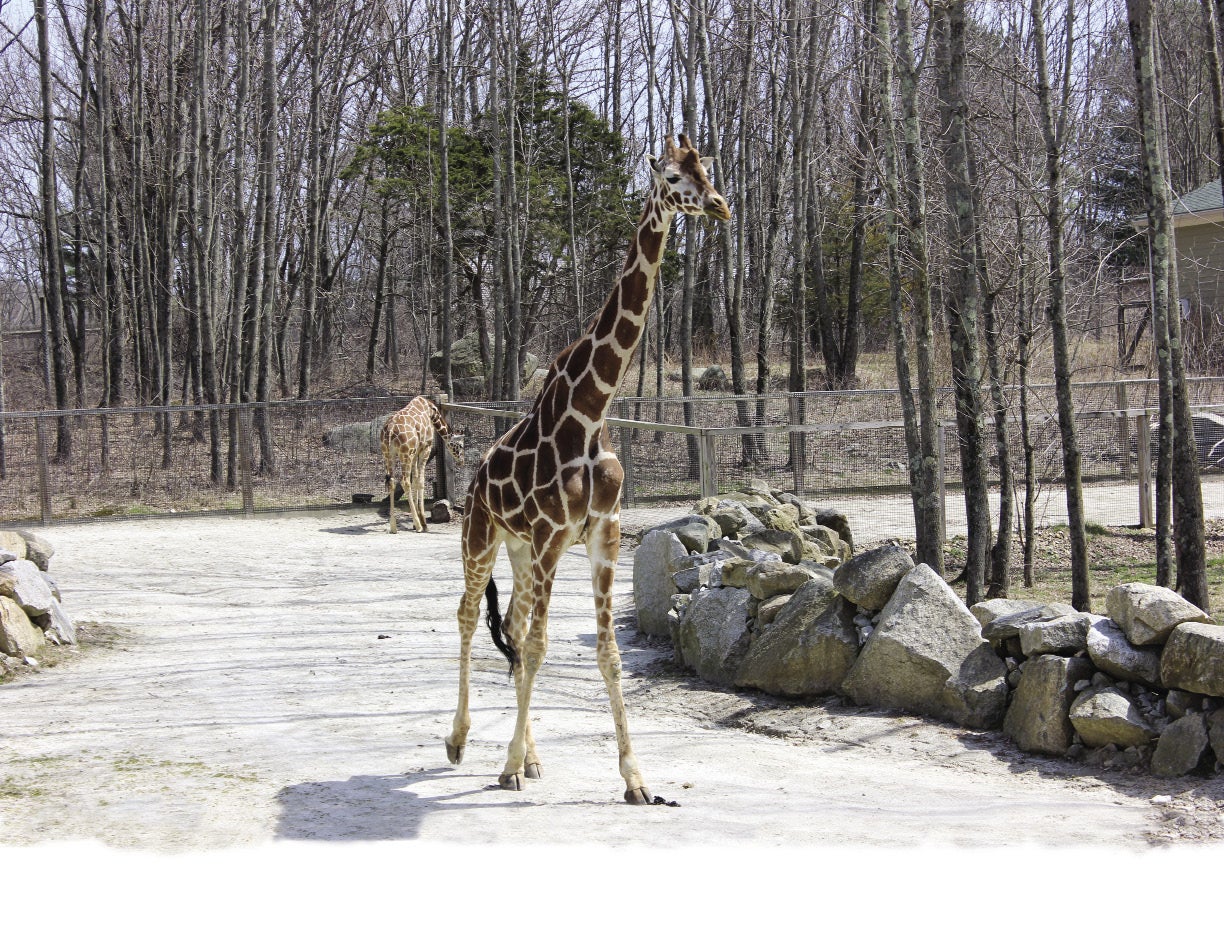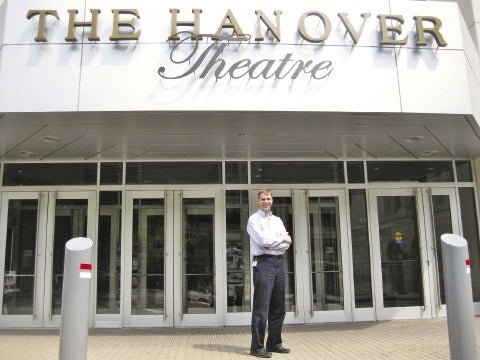With events canceled across the state and most hospitality businesses considered non-essential, the Central Massachusetts tourism industry is anticipating major losses due to efforts to stem the coronavirus pandemic.

“Our convention center has lost an incredible amount of business, the hotels that are deemed essential are running at low occupancy rates, while others are shut down; last week our room revenue in Worcester County was down an astonishing 75% compared to the same week last year,” said Stephanie Ramey, executive director of tourism agency Discover Central Mass., in an email.
Typically, visitors to Central Mass. spend $669 million annually at businesses in the region, supporting more than 4,000 jobs and generating $50 million in state and local taxes, said Ramey, citing statistics from the Massachusetts Office of Travel and Tourism, U.S. Department of Commerce and the United States Travel Association.
Due to the coronavirus, British analytics firm Oxford Economics expects a worldwide decline of 31% in tourism spending during fiscal 2020. Ramey, using this formula, estimates Central Massachusetts tourism will lose 1,200 jobs, more than $200 million in visitor spending, and nearly $15 million in state and local tax collections.
“Our cultural attractions and museums are sitting closed, and the many restaurants and small businesses that call Central Mass. home are literally praying that they can hang on,” Ramey said.
Hanover Theatre looking at $900K losses
The Hanover Theatre in Worcester canceled all its events in the second half of March, all of them in April and May, and some in June, said Troy Siebels, president and CEO of the theater.

The loss of those shows translated to $4 million in lost revenues, Siebels said, although due to the typical cost of putting on shows, the theater is only taking a $1.2 million loss in net revenues.
“It is really stressful. I’m losing a lot of sleep to be sure,” Siebels said. “I’m not alone in that. There are a lot of people in the same position as me.”
To deal with the losses, Hanover Theatre has cut $300,000 in expenses, including furloughing all its events staff. That still leaves $900,000 in losses, and Siebels hopes to recover about one-third of that by applying for funding through the $2-trillion Coronavirus Aid, Relief, and Economic Security Act passed by Congress last week.
Hanover Theatre hasn’t had to lay off any of its salaried staff. If the shutdown ends around mid-June, Siebels said he won’t have to consider any staff cuts. Beyond June, the theater is looking at about $100,000 in monthly losses due to staff expenses.
“I’m just trying to prioritize the people,” Siebels said. “There are already enough people on the unemployment rolls. I’m just trying to keep my people from having to do that.”
EcoTarium looking at $1.6M losses
The best-case scenario for the EcoTarium science museum in Worcester is a $1.6-million loss, if it is only closed through May, said Lucy Hale, president and CEO of the EcoTarium.

“Eight weeks is optimistic,” Hale said in an email. “We think this will go through the end of August based on the info we have from our national association.”
The EcoTarium plans on applying for the Economic Injury Disaster Loan through the U.S. Small Business Administration, in order to try to mitigate its losses, Hale said in an email.
Across the country, museums are losing $33 million per day, said Hale, citing the information from the American Alliance of Museums. In Massachusetts, the total lost income at cultural institutions is $55 million.
“We are also lucky that we have been able to keep our staff on payroll. Many museums have not been that lucky,” Hale said. “This is going to have a major economic impact on our country and on our region.”
Tower Hill postponing $12M construction project
The coronavirus impact at Tower Hill Botanic Garden in Boylston is somewhat less compared to other cultural institutions, although it still relies on earned revenue like those from visitors, membership dues and weddings for about 50% of its $5.5-million operating budget, said CEO Grace Elton. None of that money is coming in right now.

Tower Hill’s endowment has taken a significant hit as well, Elton said, as the stock markets are down about 25% since the efforts to stem the coronavirus spread started in earnest in mid-March.
“The potential for meeting our budgeted fundraising targets is uncertain as we can’t predict what ability our loyal donors will have for philanthropy when we come out on the other side of this,” Elton said.
Since Tower Hill’s visitation has doubled in the last five years, the botanical garden was planning on breaking ground on a $12-million construction project in March, which would have expanded the parking lot, improved accessibility, and added a new garden for children and families called The Ramble.
The project was supposed to be complete by November, Elton said, although due to the order Tower Hill shut down as a non-essential business, construction hasn’t started and now can’t be completed before winter. That likely will push pieces of the project into 2021.
“On the bright side, we are seeing that people are valuing nature and being outdoors more than ever. We pivoted our education staff’s time to develop online resources for youth and adults, and we are seeing quite a bit of interest and engagement through our website (www.towerhillbg.org) and social media channels,” Elton said in an email.
Tower Hill has about 60 full-time and part-time staff, and the nonprofit has committed to paying all staff for scheduled work hours through April 26, Elton said. The organization is working with its lenders to find available financing if the closures go much beyond that.
“Furloughs, a reduction in work hours and layoffs are on the table, as they are for most Massachusetts museums, but they are a last resort,” Elton said. “Our priority is to ensure that Tower Hill is in the best possible place when we reopen for our staff and visitors.”
Southwick’s Zoo looking at $1.5M loss
In a good year, Southwick’s Zoo in Mendon will see $7 or $8 million in revenue, the bulk of which is generated in the busy months of June, July and August, said CFO Cindy Lavoie.
However, because the zoo is closed in the winter, it needs all the revenues from April and May to help the private organization get through the winter, when the animals must still be fed and cared for, Lavoie said.

The zoo has delayed its annual opening until at least May 4 due to the coronavirus shutdown. If it is unable to open until June, the zoo is looking at a $1.5-million loss in revenue from April and May, Lavoie said. Because it is a private zoo, Southwick’s does not receive funding for any outside sources.
“We are trying to keep as many people on as we can, obviously we have to have people to take care of the animals,” Lavoie said.
The zoo employs 200 people and the accompanying restaurant employs another 100.
The zoo has applied for a Paycheck Protection Program loan from the U.S. Small Business Administration, as part of the $2-trillion economic stimulus program Congress passed next week.
If that loan is approved, the zoo should be able to make it to the busy summer months and be fine, Lavoie said. If it isn’t or the zoo must remain closed into the summer, it will have to look at layoffs or other cost reductions.
“We have been here since 1803, and it is going to take a lot for us to throw in the towel,” Lavoie said.
Nuestra losing startup momentum
Having just opened in January, the Puerto Rican restaurant Nuestra in Worcester has just started to find its groove at its Webster Square location before it closed its dining room on the order of Gov. Charlie Baker for all restaurants to stay limited to takeout and delivery.

“We were just in a normal rhythm and on the up. We had been participating in events for nonprofits, winning our first award; and we are losing that awesome momentum we had going,” Owner Natalie Rodriguez said in an email. “We are doing everything possible to stay relevant and provide awesome food and service.”
Nuestra’s revenue has decreased dramatically since the dining room closed, and Rodriguez said she has had to drastically reduce staff hours. The restaurant has gotten creative to stay relevant.
“We are offering delivery, online ordering, curbside pick up, and we are trying to feed bigger groups like hospitals and such,” Rodriguez said. “We are offering dope specials, family meals and more stories on Instagram and Facebook just to keep us fresh in the minds of our customers and followers.”

